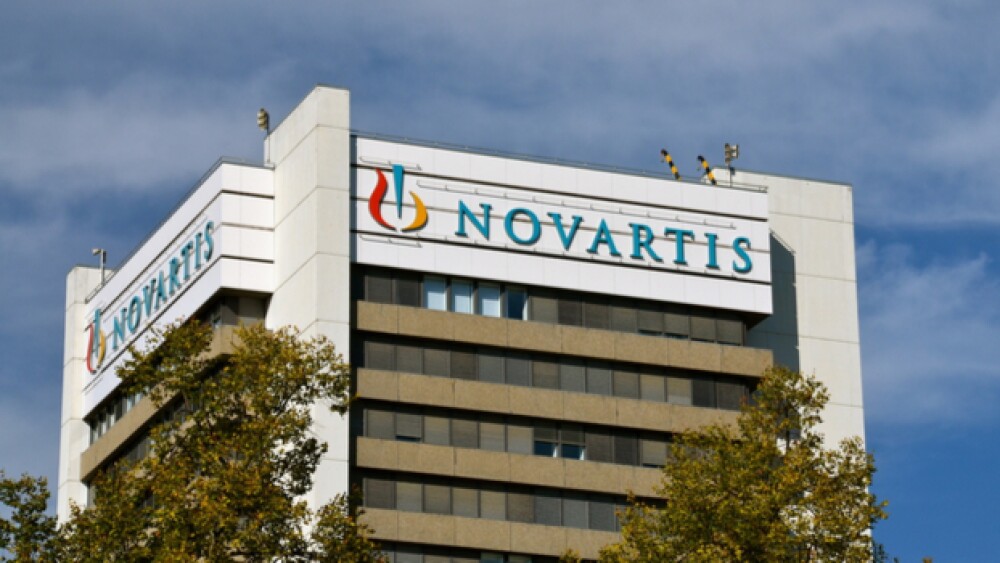Novartis announced that its Phase III MONALEESA-3 clinical trial of Kisqali (ribociclib) hit its key secondary endpoint, overall survival, in a pre-planned interim analysis.
lucarista / Shutterstock
Novartis announced that its Phase III MONALEESA-3 clinical trial of Kisqali (ribociclib) hit its key secondary endpoint, overall survival, in a pre-planned interim analysis. The MONALEESA-3 trial is evaluating the efficacy and safety of Kisqali plus fulvestrant in postmenopausal women with HR+/HER2- advanced or metastatic breast cancer in the first-line and second-line treatment settings.
Kisqali is approved for use for several cancer indications in more than 75 countries. It is a CDK4/6 inhibitor.
HR+/HER2- means that the tumors are hormone-receptor positive and epidermal growth factor receptor-2 negative.
“We are thrilled that Kisqali combination therapy again has demonstrated improved overall survival for patients with HR+/HER2- advanced breast cancer—first in pre-menopausal and peri-menopausal women in MONALEESA-7, and now in post-menopausal women in MONALEESA-3,” stated Susanne Schaffert, president of Novartis Oncology.
The company plans to present full data at an upcoming medical congress and submit the results to regulators globally.
Earlier this week, the company had less positive news. Novartis’ Entresto (sacubitril/valsartan) is currently approved for reduced fraction heart failure and the company was hoping to get it approved for another type of heart failure, preserved ejection fraction (HFpEF). However, the company reported that the drug compared to valsartan in HFpEF patients “narrowly missed” hitting its primary endpoint in its Phase III PARAGON-HF study.
Heart failure (HF) affects about 26 million people worldwide, when the heart can’t pump enough blood to the body. There are two specific types, preserved ejection fraction (HFpEF) and reduced ejection fraction (HFrEF). HFpEF is where the heart muscle contracts normally, but the ventricles don’t relax during the part of the cycle where they should relax and the ventricle fill with blood. This is associated with high hospitalization rates, poor quality of life and increased mortality.
PARAGON-HF is the biggest clinical trial in heart failure with preserved ejection fraction (HFpEF) run so far, a randomized, double-blind, parallel group, active-controlled, 2-arm, event-driven trial comparing the long-term efficacy and safety of Entresto compared to valsartan in 4,822 patients with HFpEF. The patients in the trial were ambulatory with established HFpEF with about half having a history of being hospitalized for heart failure.
The primary endpoint of the trial was the composite of total, both first and recurrent heart failure hospitalizations and cardiovascular death. PARAGON-HF is a part of FortiHFy, the largest international clinical program in the heart failure area in the pharmaceutical industry. FortiHFy has more than 40 active or planned clinical trials that evaluate a broad range of data, including decreasing symptoms, efficacy, quality of life benefits and real-world evidence.
The company is also reportedly struggling to get patient adoption for its CAR-T therapy, Kymriah, as is Gilead Sciences’ Yescarta. Payers are reluctant to pay for the high-priced therapies, which run at least $373,000 for a single treatment before hospital costs. In the second quarter, Novartis reported only $58 million in Kymriah sales, and Gilead cited only $120 million.
Reuters reports that even though Medicare is estimated to cover more than half of lymphoma patients eligible for CAR-T treatments, it hasn’t determined payment terms after almost two years of delays. Private insurers only cover CAR-T on a case-by-case basis.
Instead, an analysis performed by healthcare consultancy Vizient found that patients were being encouraged to participate in clinical trials as opposed to receiving CAR-T therapy.
“Inadequate inpatient reimbursement, especially for Medicare patients, can be a significant deterrent for hospitals to use commercially approved CAR-Ts,” Jennifer Tedaldi, associate principal at consulting firm ZS Associates, told Reuters. As a result, she said, some hospitals refer patients to clinical trials or select not to use CAR-T at all.





